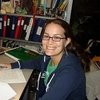
|
Brooke Andersen: Strong notions of reducibility
Marcia Groszek and Rebecca Weber studied strengthenings of
Turing reducibility defined by bounding conditions. I will survey their
work and concentrate on a reducibility that is total on all computably
enumerable oracles.
Bio: Brooke Andersen received her Ph.D. under the direction of Marcia
Groszek at Dartmouth College in June 2008. For her thesis she compared
strong notions of reducibility using complete sets. This past year she
has been an Assistant Professor at Framingham State College and in January
of 2010 she will be moving to Assumption College in Worcester, MA.
|

|
Cameron Freer: Computable de Finetti measures
We prove a uniformly computable version of de Finetti's theorem. The
classical result states that an exchangeable sequence of real random
variables is a mixture of independent and identically distributed (i.i.d.)
sequences of random variables. Moreover, there is a measure-valued random
variable, called the directing random measure, conditioned on which the
random sequence is i.i.d. The distribution of the directing random measure
is unique and is called the de Finetti measure. We show that
computable exchangeable sequences of real random variables have computable
de Finetti measures. (This is joint work with Daniel Roy.)
Bio: Cameron Freer is an Instructor of Pure Mathematics at MIT. He completed
his PhD at Harvard in 2008 under the direction of Gerald Sacks.
|
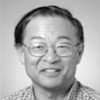
|
Akihiro Kanamori: Mathematical knowledge: motley and complexities of proof
I describe mathematical knowledge as invested in the motley and
complexities of proof, starting with an example in set theory and then
surveying the contemporary mathematical landscape.
Bio: Akihiro Kanamori is Professor of Mathematics at Boston University.
His interests are in set theory: research in large cardinals and
consistency results, and the history and philosophy of set theory as
embedded in analytic philosophy and its history. He is the author of The
Higher Infinite (Spring-Verlag 1994), which has become the standard
graduate text for large cardinals.
|
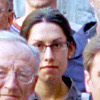
|
Maryanthe Malliaris: Persistence and regularity in unstable theories
Motivated in part by a question of Keisler about saturation of regular
ultrapowers, we develop a framework which allows us to relate
model-theoretic complexity to graph-theoretic notions of structure and
randomness, notably Szemeredi regularity.
Bio:
Maryanthe Malliaris is finishing her Ph.D. under the supervision of Thomas Scanlon at U.C.
Berkeley. In the fall she will begin a Dickson Instructorship at the
University of Chicago.
|
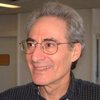
|
Barry Mazur: A conversation on logic and number theory (with Bjorn Poonen and Carol Wood)
Bio: Barry Mazur is Gerhard Gade University Professor of Mathematics at Harvard
University.
|

|
Mia Minnes: Christol's theorem: surprising connections between automaticity, algebraicity, and morphic sequences
We will discuss Christol's beautiful theorem which lies at the
crossroads of several disparate subjects. In particular, we will provide
the necessary definitions to understand the theorem statement and, time
permitting, outline the flavour of its proof. We will conclude with
current attempts to extend Christol's theorem and ideas for applications.
Bio: Mia Minnes got her PhD from Cornell in 2008 under Anil Nerode. Her
thesis proved results about automatic structures, answering questions
about their complexity and applications. This is her first year as a CLE
Moore Instructor at MIT. She will begin an SE Warschawski Assistant
Professorship at UC San Diego in July of 2010
|
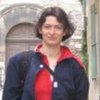
|
Andreea Nicoara: non-Noetherianity of the Denjoy-Carleman quasianalytic rings
The Denjoy-Carleman quasianalytic classes are subrings of the
ring of smooth functions on which the Taylor morphism is injective, i.e. a
function with zero derivatives up to infinite order is the zero function.
Usually studied by analysts, these classes also have fascinating algebraic
characteristics including that they fail to possess the Weierstrass
Division Property. As a result, the standard inductive argument used for
holomorphic and real-analytic functions to prove Noetherianity cannot be
carried out. Whether these Denjoy-Carleman classes are Noetherian or non-
Noetherian rings has thus been an open problem since 1976. I will discuss
joint work with Liat Kessler (MIT) that settles this question using a
modification of a Zariski structure satisfying quantifier elimination.
Bio: Andreea Nicoara is an Assistant Professor at the University of
Pennsylvania. Previously, she held a Benjamin Peirce Assistant
Professorship at Harvard University. She works at the intersection of
several complex variables with algebraic geometry over non-Noetherian
rings. More recently, she has been applying model theory to algebraic
problems that arise in this work.
|

|
Pedro Poitevin: Ranges of positive contractive projections in Nakano spaces
Nakano spaces are generalizations of Lp-spaces in which the
parameter p is allowed to vary randomly with the underlying measure space.
We will characterize the possible ranges of positive contractive
projections in Nakano spaces and discuss the model-theoretic significance
of this characterization.
Bio: Pedro Poitevin did his graduate work under Ward Henson at the
University of Illinois at Urbana-Champaign and is currently Assistant
Professor at Salem State College. He is interested in continuous model
theory of structures in functional analysis, particularly Banach lattices.
|
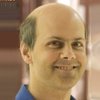
|
Bjorn Poonen: A sampler of undecidable problems
I will present a selection of problems from group theory,
topology, number theory, and algebraic geometry that have been proved to
be undecidable, and also present a few problems whose decidability status
is not yet known.
A conversation on logic and number theory (with Barry Mazur and Carol Wood)
Bio: Poonen has a background in number theory and algebraic geometry,
but occasionally works also on applications of these subjects to problems
originating in logic. He has edited two books and authored about 80
research articles on a wide variety of mathematical topics. He is the
founding managing editor of Algebra and Number Theory, a journal
published by the nonprofit organization Mathematics Sciences Publishers.
|

|
Benjamin Rossman: k/4 variables are not enough for k-clique
We show that the k/4-variable fragment of first-order logic
cannot define the class of finite ordered graphs which contain a k-clique.
It was previously unknown whether 3 variables suffice to express every
first-order property of finite ordered graphs.
Bio: Ben Rossman is a graduate student in theoretical computer science at
MIT.
|

|
Gerald Sacks: Models of long sentences
Bio: Gerald Sacks is Professor of Mathematical Logic at Harvard
University.
|
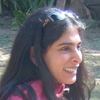
|
Maya Saran: A result on sigma-ideals of compact sets
For E a compact metric space, the space of its compact subsets,
K(E), is itself compact metric. We consider sigma-ideals of compact sets,
i.e., subsets of K(E) closed under the taking of subsets and countable
(compact) unions. Such sigma-ideals typically arise out of various notions
of smallness; their descriptive-set-theoretic study is well established.
Solecki has proved a representation theorem for a broad natural class of
sigma-ideals of compact sets. I will give the background, state his
result, and present a theorem that refines it.
Bio: Maya Saran is finishing her PhD under Slawomir Solecki at the
University of Illinois at Urbana-Champaign. Her research in descriptive
set theory is on sigma-ideals of compact sets.
|

|
Eric Wofsey: Noncommutative set theory
By Gelfand duality, commutative unital C*-algebras are dual
to compact Hausdorff spaces. Noncommutative C*-algebras can thus be
thought of as the algebras of functions on some sort of "noncommutative
spaces". When these spaces are taken to be geometric in nature, this is
the starting point of the field of noncommutative geometry. However, if
instead we take more set-theoretic spaces, we get what might be called
"noncommutative set theory"? In particular, there is a natural
non-commutative version of the Stone-Cech remainder beta omega-omega
and many questions and results about the combinatorics of subsets of
omega modulo finite sets have noncommutative analogs.
Bio: Eric Wofsey is a first-year grad student at Harvard University. He
did some work in set theory as an undergraduate, but will probably now be
specializing in algebraic topology.
|

|
Carol Wood: A conversation on logic and number theory (with Barry Mazur and Bjorn Poonen)
Bio: Carol Wood is Edward Burr Van Vleck Professor of Mathematics at
Wesleyan University. She is a model theorist who admires applications of
model theory to number theory and geometry, even ones she cannot quite
understand.
|















